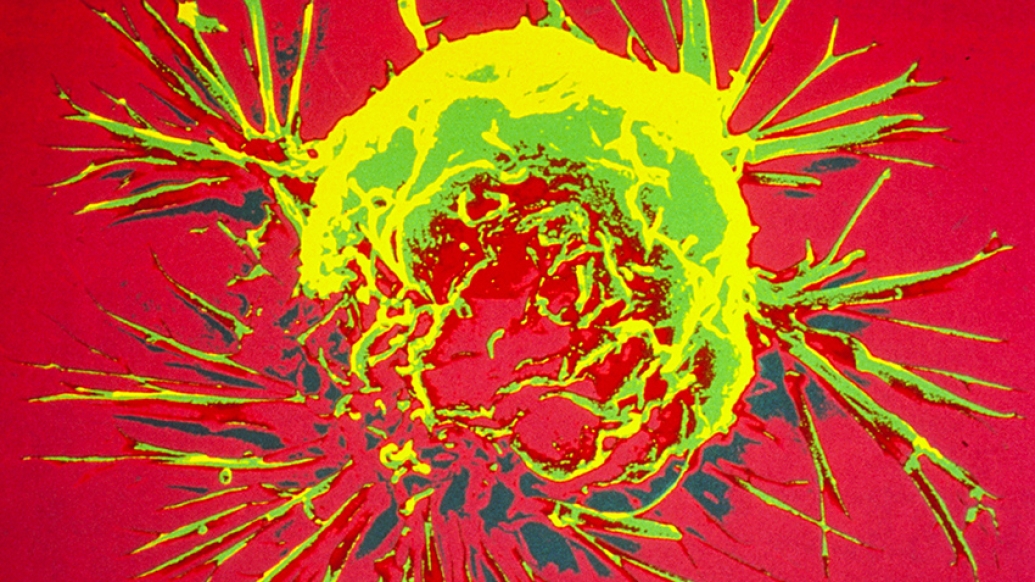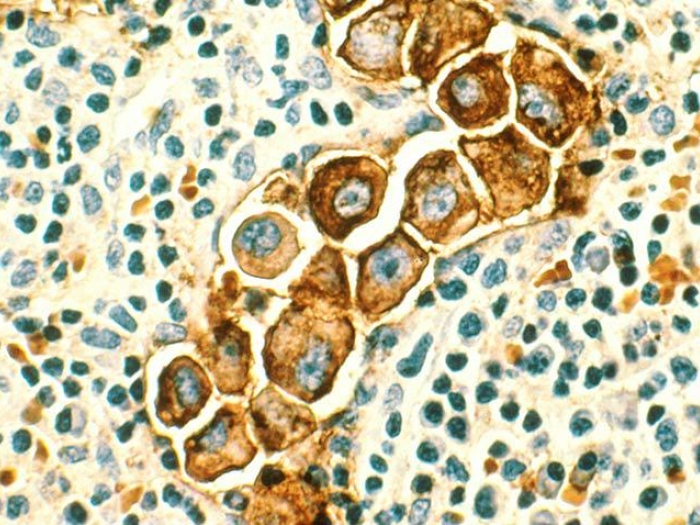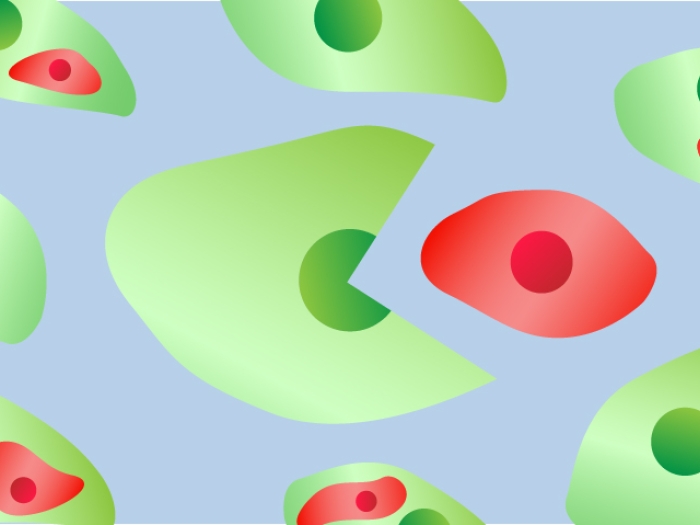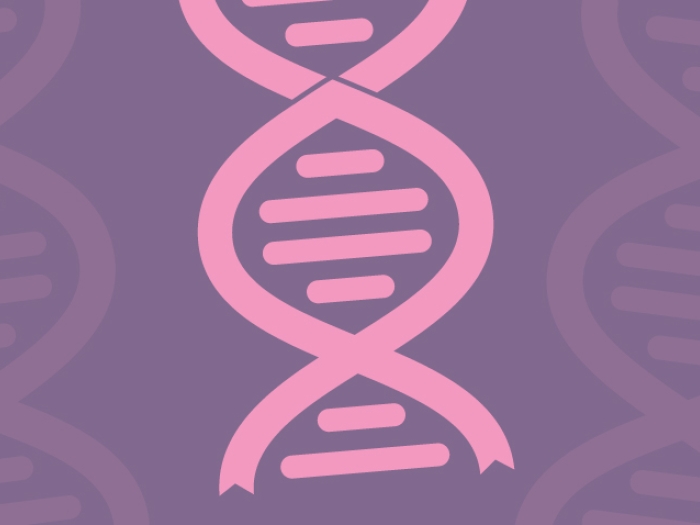Looking beyond DNA mutations to a combination of molecular features could help determine the best drug combinations for each patient.
9:27 AM
Author |

Triple-negative breast cancer is an aggressive cancer, one that's likely to recur and to metastasize.
It's also quite diverse at the molecular level, and doctors currently don't have a good method for determining which drugs are likely to work against each patient's unique cancer.
Sometimes a drug will work well against a triple-negative breast cancer tumor that exhibits a particular DNA mutation, only to fail against others with the exact same mutation.
But a group of researchers at the University of Michigan Rogel Cancer Center is laying the foundations for a new, "multi-omic" approach that could help determine the drugs to which a particular triple-negative tumor will be most likely to respond based on the totality of its molecular features.
The team's method for identifying these "biomarkers" of drug response in triple-negative breast cancer cell lines was recently published in the journal Breast Cancer Research and Treatment. The approach examines not only DNA mutations, but also gene and protein expression levels.
"The ultimate goal here is to add to precision medicine — to be able to look at an individual patient's tumor and be able to determine a treatment strategy for that patient based on their tumor," says the study's first author Nathan M. Merrill, Ph.D., a postdoctoral fellow at Michigan Medicine — noting that the promising initial results in cancer cell lines will next need to be validated in animal models using patient-derived tumors.
"Currently, most of the biomarkers to predict drug response are based on a tumor's DNA mutations, but because relying on these mutations alone is such a poor predictor in triple-negative breast cancer, we designed a system to look at a tumor's other characteristics," he adds.
The team started with a diverse array of triple-negative breast cancer cell lines — 23 in total — and mapped the molecular features of each using a variety of techniques including DNA sequencing, RNA sequencing, and profiles of protein expression, known as proteomics.
The ultimate goal here is to add to precision medicine — to be able to look at an individual patient's tumor and be able to determine a treatment strategy for that patient based on their tumor,Nathan M. Merrill, Ph.D.
Next, the team tested 78 approved or investigational cancer drugs against each of the cell lines, selecting the compounds based on their effectiveness in other solid-tumor cancers. After a series of initial experiments to gauge their effectiveness, 12 of the drugs were prioritized for deeper analysis.
Among these, the research group found six drugs that showed promising results against tumors with particular molecular features — suggesting the approach is a solid first step toward developing robust biomarkers of drug response in triple-negative breast cancer.
"Many other breast cancer subtypes are defined by the pathways that you would use to target them — for example, you'd treat HER2-positive breast cancer with a HER-2 inhibitor," says senior study author Sofia Merajver, M.D., Ph.D., a professor of internal medicine and epidemiology at the U-M. "Triple-negative breast cancer is defined by its lack of hormone receptors and HER2 expression, which makes it much more difficult to target. We needed to do better."
Since cancer often quickly develops resistances against individual drugs, the researchers also wanted to use their "multi-omic" approach to look for ideal combinations of drugs.
"The idea is that if we find a marker that is particularly high in drug-resistant cells, we might be able to make the cells more responsive to treatment by adding a drug that also targets that marker," says senior study author Matthew Soellner, Ph.D., an assistant professor of internal medicine and chemistry at U-M, and an affiliate faculty member of the U-M Life Sciences Institute. "Ultimately, we found we could make most of the cell lines more sensitive to our target drug — it worked better than we had hoped for."
The research was supported by the National Institutes of Health (1R21CA218498), the Breast Cancer Research Foundation, Tempting Tables, The Rose Run, and the Kathy Bruk Pearce Research Fund of the U-M Rogel Cancer Center.
Additional authors include Eric J. Lachacz, Nathalie M. Vandecan, Peter J. Ulintz, Liwei Bao, John P. Lloyd, Joel A. Yates and Aki Morikawa, all of U-M.
Paper cited: "Molecular determinants of drug response in TNBC cell lines," Breast Cancer Research and Treatment. DOI: 10.1007/s10549-019-05473-9

Explore a variety of healthcare news & stories by visiting the Health Lab home page for more articles.

Department of Communication at Michigan Medicine
Want top health & research news weekly? Sign up for Health Lab’s newsletters today!




